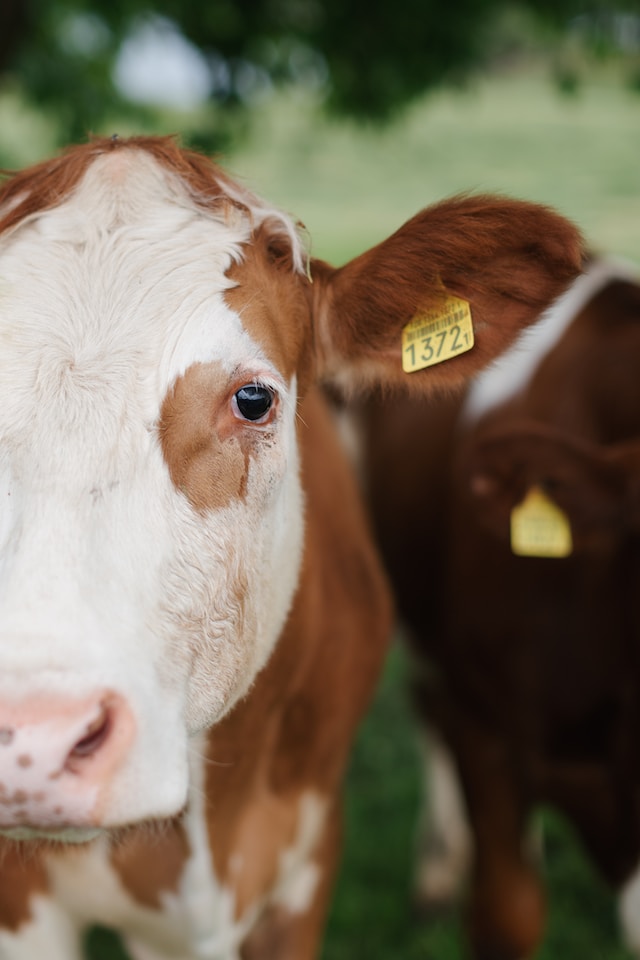
Veganism is a lifestyle that avoids the consumption and use of animal products, including meat, dairy, eggs, and leather. It’s a decision that not only benefits individual health but also has a significant impact on the environment and animal welfare.
Improved health
The vegan lifestyle is not just a conscious decision to abstain from animal products but also a practical one. One that can benefit your health and overall well-being. Let’s delve deeper into the improved health benefits that come with being a vegan.
Lower risk of chronic diseases
Studies have shown that those who consume plant-based diets have a lower risk of chronic diseases such as heart disease, diabetes, and cancer due to the high intake of nutrients, vitamins, and antioxidants that help prevent aging and chronic diseases.
- Heart disease: A plant-based diet can lead to an improved cholesterol profile and lower blood pressure. LDL cholesterol levels (considered the “bad” cholesterol) decrease with a vegan diet, reducing the risk of heart disease.

- Type 2 diabetes: Being overweight or obese is a significant factor in developing type 2 diabetes. A vegan diet can manage weight and lower the risk of developing diabetes. Plant-based diets can reduce the risks of developing Type 2 diabetes and can help in its treatment.
- Certain types of cancer: Research has found a link between meat consumption and the development of certain types of cancer such as colorectal and breast cancer. Plant-based diets, on the other hand, reduce the risk of these types of cancer.
Improved digestion and gut health:
Plant-based diets are high in fiber, which helps to regulate digestion and bowel movements. This, in turn, reduces the risk of constipation, diverticulitis, and other digestive conditions.
Better weight management
Veganism encourages the consumption of nutrient-dense foods, meaning those that are high in vitamins and minerals per calorie. Such foods lead to a feeling of fullness and reduce calorie intake, which can help with weight loss.

Environmental impact
Veganism is a lifestyle choice that can have a significant environmental impact. The livestock industry is responsible for producing a substantial amount of greenhouse gas emissions, water usage, and deforestation. By choosing a plant-based diet and avoiding animal products, we can significantly reduce our environmental impact.
Reduced greenhouse gas emissions
One of the main environmental benefits of veganism is the reduction in greenhouse gas emissions. Livestock farming is responsible for a significant proportion of global carbon dioxide, methane, and nitrous oxide emissions. These gases trap heat in the atmosphere and contribute to climate change. By reducing our meat consumption, we can minimize our carbon footprint and help fight climate change.
Reduced water usage
Another significant environmental benefit of veganism is the reduction of water usage. The meat industry is a huge consumer of water, and it takes approximately 2,500 gallons of water to produce just one pound of beef. In contrast, producing a pound of vegetables uses a fraction of this amount. By going vegan, we can help conserve water resources and reduce our overall impact on the environment.
Reduced deforestation and land use

Deforestation and land use are also significant environmental concerns associated with the livestock industry. Land is cleared to make space for grazing and growing animal feed, which not only destroys natural habitats but also contributes significantly to deforestation.
By choosing a plant-based diet, we can help minimize the demand for animal feed and contribute to the conservation of natural habitats.
In addition, plant-based diets can help to reduce waste production, as animal agriculture produces a significant amount of waste, which can be harmful to the environment. By reducing the demand for animal products, we can contribute to a more sustainable and environmentally friendly future.
Ethical considerations
Ethical considerations are a significant driving factor for many people who choose to lead a vegan lifestyle. The philosophy of compassion for animals and a reduction of animal cruelty are foundational principles of veganism.
By going vegan, you are promoting animal rights and reducing the exploitation of animals for human consumption. The livestock industry subjects animals to inhumane conditions such as cramped spaces, forced breeding, and long journeys without rest.

Animals are often mistreated and subjected to cruel practices such as tail docking, dehorning, and physical abuse. Going vegan ensures that you don’t become a participant in these cruel practices.
Refusing to consume animal products can help to reduce the overall demand for animal products, which helps to minimize the number of animals raised, exploited, and killed for consumption. Choosing veganism allows you to live a more compassionate life while still enjoying a healthy and fulfilling diet.
Economic benefits
The economic benefits of adopting a vegan lifestyle are not often discussed but are just as important as the health and environmental benefits. One of the most significant economic benefits of a vegan lifestyle is the reduced healthcare costs associated with a plant-based diet. Chronic diseases such as heart disease, type 2 diabetes, and certain types of cancer are on the rise, and the healthcare costs associated with these diseases are staggering. By consuming a plant-based diet, individuals can significantly reduce their risk of developing these chronic diseases, leading to reduced healthcare costs and a healthier population overall.
The growth of the plant-based food industry also provides economic benefits, from increased productivity to economic growth. As more individuals turn to plant-based diets, the demand for plant-based products such as meat alternatives and plant-based milks also increases. This leads to increased innovation in the plant-based food industry, with new companies and products emerging to meet this demand. The growth of this industry provides employment opportunities, boosts economic growth, and encourages innovation within the food industry.

A practical and ethical way of life
Choosing the vegan lifestyle is not only about being ethical but also a practical decision that can benefit you in many ways. A vegan lifestyle has a plethora of benefits that not only improve personal health but also benefit the environment and animals. The reduction of animal products in our diets is a powerful step towards a more sustainable and compassionate future. By adopting a vegan lifestyle, we can significantly reduce our carbon footprint, lower the risk of chronic diseases, and promote ethical practices. So, why not make the change today and opt for a healthier and happier life, a cleaner planet, and a kinder world for all beings?